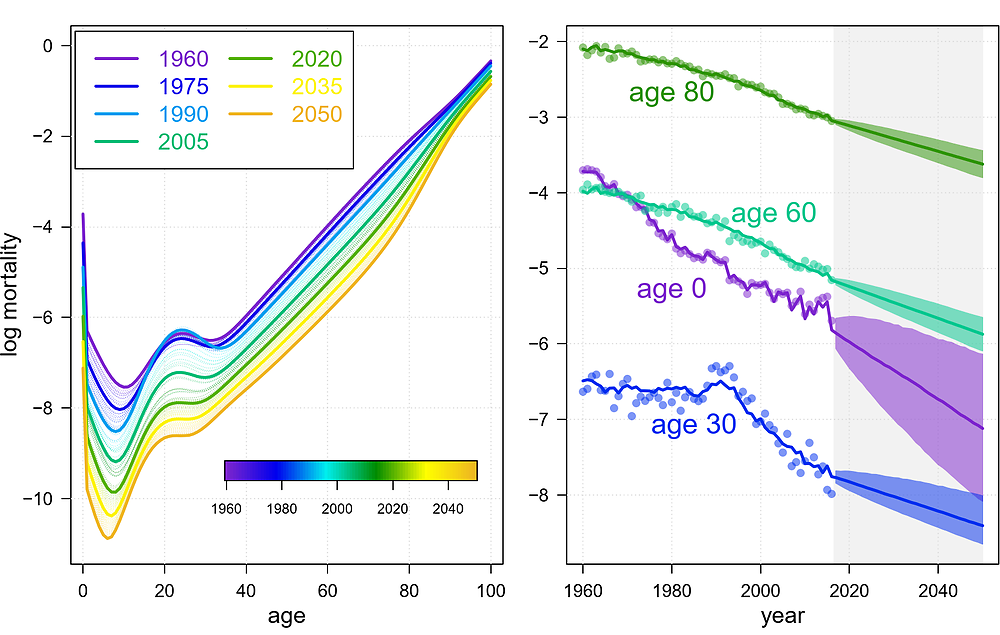Arbeitsbereich
Bevölkerungsdynamik und Nachhaltiges Wohlbefinden
Auf einen Blick
Projekte
Publikationen
Team
Projekt
Forecasting Population-Level Mortality
Ugofilippo Basellini; in Zusammenarbeit mit Carlo Giovanni Camarda (French National Institute for Demographic Studies, Paris, Frankreich)
This project generates novel insights into the analysis and forecast of population-level human mortality by introducing new statistical methods based on age-at-death distributions and the decomposition of the mortality age-pattern. Ausführliche Beschreibung
Beobachtete und prognostizierte Sterberaten für Schweizer Männer

Actual, estimated and forecast death rates by Three-Component smooth Lee-Carter model over age (left) and time (right) on a log scale for Swiss males. Unlike in the original Lee-Carter method, mortality forecasts over ages are smooth, and rates of mortality improvement over time are not constant. © Camarda and Basellini (2021)
Alterung, Sterblichkeit und Langlebigkeit, Projektionen und Vorhersagen, Statistik und Mathematik
Europa, Japan, Vereinigte Staaten
Publikationen
Leger, A.-E.; Rizzi, S.; Basellini, U.:
arXiv e-prints 2502.10787. unpublished. (2025)

Basellini, U.; Camarda, C. G.; Booth, H.:
International Journal of Forecasting 39:3, 1033–1049. (2023)

Camarda, C. G.; Basellini, U.:
European Journal of Population 37:3, 569–602. (2021)
Basellini, U.; Camarda, C. G.:
In: Developments in demographic forecasting, 105–129. Cham: Springer International Publishing. (2020)

Basellini, U.; Kjærgaard, S.; Camarda, C. G.:
Insurance: Mathematics and Economics 91, 129–143. (2020)
Bergeron Boucher, M.-P.; Kjærgaard, S.; Pascariu, M. D.; Aburto, J. M.; Alvarez Martinez, J. A.; Basellini, U.; Rizzi, S.; Vaupel, J. W.:
In: Developments in demographic forecasting, 131–151. Cham: Springer International Publishing. (2020)

Pascariu, M. D.; Basellini, U.; Aburto, J. M.; Canudas-Romo, V.:
Risks 8:4, 109.1–109.18. (2020)
